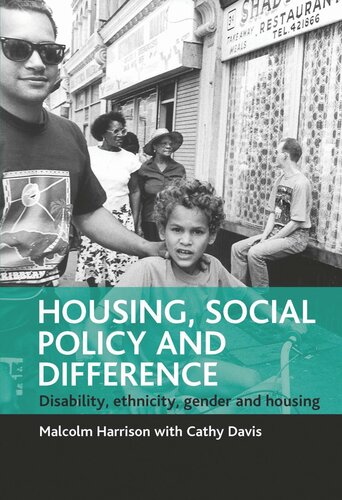

Most ebook files are in PDF format, so you can easily read them using various software such as Foxit Reader or directly on the Google Chrome browser.
Some ebook files are released by publishers in other formats such as .awz, .mobi, .epub, .fb2, etc. You may need to install specific software to read these formats on mobile/PC, such as Calibre.
Please read the tutorial at this link: https://ebookbell.com/faq
We offer FREE conversion to the popular formats you request; however, this may take some time. Therefore, right after payment, please email us, and we will try to provide the service as quickly as possible.
For some exceptional file formats or broken links (if any), please refrain from opening any disputes. Instead, email us first, and we will try to assist within a maximum of 6 hours.
EbookBell Team

4.0
66 reviewsIssues of 'difference' are on the agenda right across the social sciences, and are encountered daily by practitioners in policy fields. A central question is how the welfare state and its institutions respond to impairment, ethnicity and gender. This book provides an invaluable overview of key issues set in the context of housing. Touching on concerns ranging from minority ethnic housing needs to the housing implications of domestic violence, this broad-ranging study shows how difference is regulated in housing. It deploys a distinctive theoretical perspective which is applicable to other aspects of the welfare state, and bridges the agency/structure divide. Housing, social policy and difference: brings disability, ethnicity and gender into the centre of an analysis of housing policies and practices; offers a new approach to housing, informed by recent theoretical debates about agency, structure and diversity; develops the ideas of 'difference within difference' and 'social regulation'; looks beyond the concerns of postmodernism to create an original account of difference and structure within the welfare state. The book will be an important text for students and researchers in housing, social policy, planning, urban studies, sociology, disability studies, gender studies and ethnic relations. It will also interest practitioners committed to greater equalities of opportunities and a fairer society.